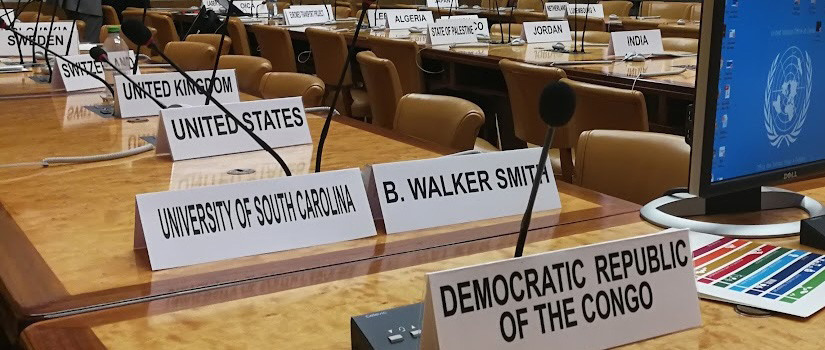Traditionally, public international law comprises the legal obligations that apply to countries, private international law determines which country’s laws apply in disputes between individual actors, and comparative law refers to the study of different countries’ domestic legal frameworks.
More broadly, many areas of the law involve transactions, disputes, and clients that cross national boundaries. These include immigration law, trade and investment law, contract law, project finance, securities law, administrative law, and many others.
Practitioners might work in another country or work in the US with clients from another country. They might counsel the federal government on international frameworks for data protection, help a company navigate restrictions on the export of sensitive technologies, advise the military on how the laws of war apply to cyberattacks, help an injured victim collect money from an overseas manufacturer, draft a transnational contract for a foreign infrastructure project, counsel refugees seeking asylum, or help a company understand its international tax obligations, and much more.
Our graduates practice internationally. William Hubbard helped found the World Justice Project to keep governments accountable for upholding the rule of law. David Beasley led the World Food Programme. Chris Campbell specializes in international commercial dispute resolution, including arbitration. South Carolina is a major destination for international trade and investment, especially from China and Germany and especially in the automotive and aviation fields.
We offer a wide range of courses on international, comparative, and transnational law. Not every course is offered regularly, and to be a well-rounded lawyer you should take many courses outside of these areas as well.
Courses providing a foundation in international, comparative, or transnational law
- Comparative Law
- Conflict of Laws
- Public International Law
Courses focused on international, comparative, or transnational law
- Climate Change Seminar
- Indigenous Justice
- International Business Transactions
- International Environmental Law
- International Intellectual Property
- International Trade Law
- International Criminal Law
- Contemporary Topics in National Security and International Law
- Project Finance
- Seminar on Restorative and Transformative Justice
- Use of Force and the Law of Armed Conflict
- Use of Force, Sanctions & Tech Transfer Law After the Attack on Ukraine
Courses aware of international, comparative, or transnational law
- Bioethics Seminar
- Domestic Violence Clinic
- Eighth Amendment Law & Litigation
- Federal Indian Law
- Gender-Based Violence Seminar
- Products Liability
- Technology Law: Law of the Newly Possible
- The Constitution and National Security
- Transportation Law
- Water Law
- Data Privacy
- Cybersecurity Law and Policy
- Artificial Intelligence, Law, Ethics and Policy
Our relevant combination degrees include:
- Master of Earth and Environmental Resources Management (MEERM) and Law joint degree program
- Master of Business Administration (MBA)
- International Master of Business Administration (IMBA)
- Public Administration and Law joint degree program
Relevant student organizations include:
- International Law Society
- Environmental Law Society
- National Security Law Society
- South Carolina Against Trafficking
- Veterans in Law
- Vis International Arbitration Moot
- South Carolina Journal of International Law and Business
